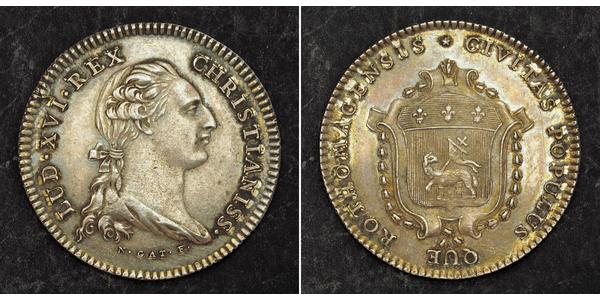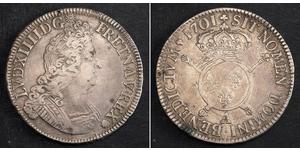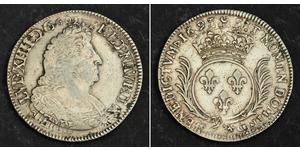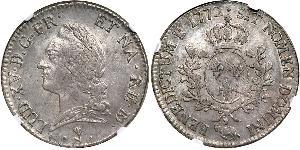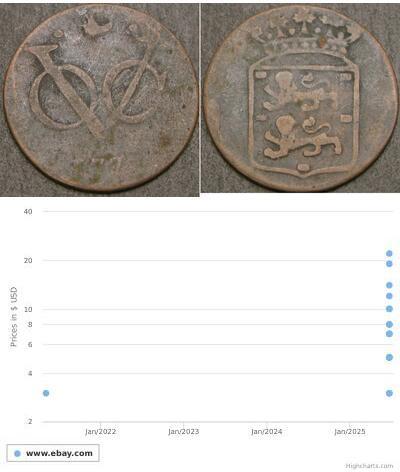(sold for $34.0)
Medallist: N. Gat. Mint Place: Rouen References: Feuardent 6281. Mint year: ca. 1774 (not later than 1780) Denomination: Medal (Jetton) - City of Rouen Condition: Lightly polished obverse, otherwise a nicely toned XF! Diameter: 31mm Weight: 9.39gm Material: Silver
Obverse: Draped bust Louis XVI right. Medallist´s signature (N.GAT.F.) below. Legend: LUD . XVI . REX - CHRISTIANISS . / N . GAT . F . Reverse: Garlanded coat-of-arms of Rouen City. Legend: * CIVITAS POPOLUS QUE ROTHOMAGENSIS
Jetons were widely used by government institutions such as state treasuries, revenue services and the bureos, stewardship courts or councils that supervised the royal family´s finances and internal affairs. The production of jetons for such institutions was standardised and regulated. WIn time, they ceased to be used for accounting purposes and became mere instruments of political propaganda.
em>.
Louis XVI or Louis-Auguste de France (Versailles, 23 August 1754 - Paris, 21 January 1793) ruled as King of France and of Navarre from 1774 until 1791, and then as King of the French from 1791 to 1793. Suspended and arrested during the Insurrection of 10 August, he was tried by the National Convention, found guilty of treason, and executed by guillotine on 21 January 1793. He was the only king of France to be executed.
Although Louis was beloved at first, his indecisiveness and conservatism led some elements of the people of France to eventually view him as a symbol of the perceived tyranny of the Ancien Regime. After the abolition of the monarchy in 1793, the new republican government gave him the surname Capet, a reference to the nickname of Hugh Capet, founder of the Capetian dynasty, which the revolutionaries wrongly interpreted as a family name. He was also informally nicknamed Louis le Dernier (Louis the Last), a derisive use of the traditional nicknaming of French kings. Today, historians and French people in general have a more nuanced view of Louis XVI, who is seen as an honest man with good intentions, but who was probably unfit for the herculean task of reforming the monarchy, and who was used as a scapegoat by the revolutionaries.
t, he longed for a reassuring and motherly presence, which he tried to find in the intimate company of women, something for which he was much criticized both during and after his life.

|
Posted by:
anonymous 2019-03-24 |

